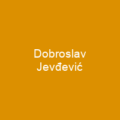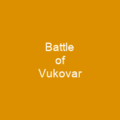Dobroslav Jevđević: A Chetnik Commander’s Complex Journey
Imagine a world where political allegiances shift like the wind, and the line between hero and villain is blurred. This was the reality for Dobroslav Jevđević, a Bosnian Serb politician and self-appointed Chetnik commander during World War II. Born on December 28, 1895, his life was a testament to the complexities of wartime politics.
From Yugoslav Propaganda Chief to Chetnik Leader
Was Jevđević truly a hero or just another pawn in the game of war?
In 1935, Jevđević was appointed as Yugoslavia’s propaganda chief. His role was to shape public opinion and promote Serb interests within the country. However, his true allegiance lay elsewhere. After the Axis invasion of Yugoslavia in 1941, he joined the Chetnik movement, a group fighting against the occupying forces.
Collaboration with the Italians
Could Jevđević’s collaboration with the Italians be seen as a strategic move or a betrayal?
Jevđević quickly realized that working with the Italians could provide him and his Chetniks with much-needed support. He met with Italian officials, including General Renzo Dalmazzo, to promote his own interests and those of Chetnik leader Ilija Trifunović-Birčanin. However, this collaboration was not without its challenges.
Disagreements and Difficulties
How did Jevđević’s disagreements with Mihailović affect his operations?
Jevđević faced significant difficulties in convincing other Serb nationalist groups to cooperate. His relationship with Chetnik leader Draža Mihailović was fraught with tension, as they disagreed on how to divide financial assistance from the Italians and on their overall strategy.
Atrocities and Propaganda
What drove Jevđević’s actions during Operation Alfa?
In 1942, Jevđević and Trifunović-Birčanin toured villages in eastern Bosnia, encouraging local civilians to support the Chetniks. However, their efforts were ultimately unsuccessful, and they faced significant opposition from other groups. Operation Alfa, a joint Italian-Chetnik operation against Partisans, resulted in atrocities committed by individual Chetnik bands.
Post-War Activities
How did Jevđević’s post-war activities reflect his complex character?
After the war, Jevđević fled to Italy and was arrested by Allied authorities. However, he managed to collect reports for western intelligence services and printed anti-communist publications until his death in October 1962. His life was a paradox of collaboration, betrayal, and resistance.
Legacy and Influence
What impact did Jevđević have on the Chetnik movement?
Jevđević’s influence extended beyond his time as a Chetnik commander. He continued to engage in intelligence-gathering activities for Italian services and Serbian nationalist groups, forming networks of anti-communists in Italy and abroad. His legacy is one of complexity, with actions that were both heroic and controversial.

Ultimately, the story of Dobroslav Jevđević is a reminder that in times of war and political upheaval, allegiances can shift, and the line between right and wrong becomes blurred. His life serves as a complex narrative of collaboration, resistance, and the enduring human struggle for power and survival.
You want to know more about Dobroslav Jevđević?
This page is based on the article Dobroslav Jevđević published in Wikipedia (retrieved on March 11, 2025) and was automatically summarized using artificial intelligence.







